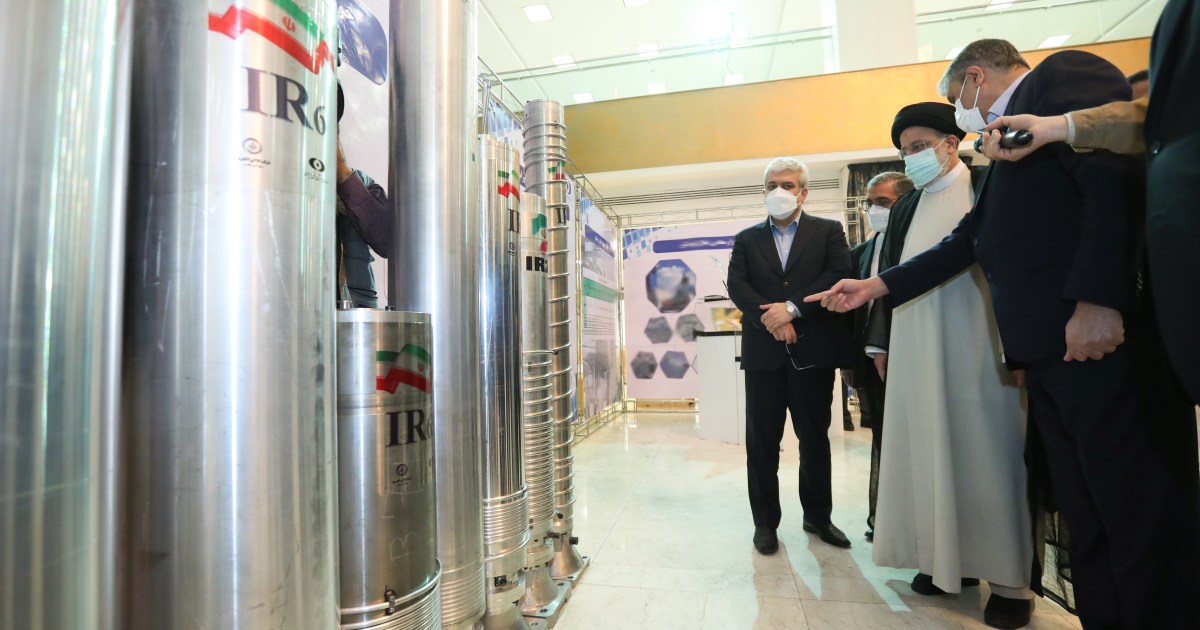On Thursday, Iran considered the decision of the International Atomic Energy Agency, in which it criticized its lack of cooperation, "political and unconstructive," while an informed source said that Tehran would accelerate the production of centrifuges.
The Iranian Foreign Ministry said in a statement, "Iran deplores the approval of the draft resolution proposed by America, Britain, France and Germany at today's meeting of the International Atomic Energy Agency's Board of Governors as a wrong and unconstructive political measure."
In its statement, the ministry considered that "the approval of the aforementioned decision, which was based on a hasty and unbalanced report by the Director General of the Agency and false and fabricated information by the Zionist entity, has no result other than weakening the course of cooperation and dealings of the Islamic Republic of Iran with the Agency."
She pointed out that the "unconstructive approach of the agency and the approval of the aforementioned resolution" prompted Iran to take "practical steps in return, including installing advanced centrifuges and stopping the work of cameras operating outside the scope of the guarantee procedures."
The agency had recently issued a report in which it considered that Tehran had not provided sufficient explanations regarding the finding of traces of nuclear materials in 3 unauthorized sites.
The Russian envoy to Vienna said that 30 out of 35 countries voted in favor of the resolution, while Russia and China opposed it, while 3 countries, India, Libya and Pakistan, abstained.
The United States, Germany, France and Britain had submitted a draft resolution to the International Atomic Energy Agency's Board of Governors demanding Iran's full cooperation, and expressing deep concern about what he described as Iran's insufficient cooperation on safeguards for the three questionable nuclear sites.
New actions
The Iranian Atomic Energy Organization had announced new measures in response to the moves of the International Atomic Energy Agency regarding Iran's nuclear program.
According to the organization, the work of surveillance cameras in one of Iran's nuclear facilities has been suspended as of yesterday, Wednesday, and they are cameras that it said do not fall within Iran's commitments contained in the safeguards agreement, explaining that more than 80% of the cameras covered by the agreement will remain in service.
Reuters also reported that it had seen a report submitted by the International Atomic Energy Agency to member states declaring that it had verified that Iran had started installing a new set of advanced IR-6 centrifuges at the Natanz nuclear plant. Installing two additional sets of advanced "IR6" centrifuges in Natanz.
Iran's ISNA news agency also reported, citing an informed source, that Tehran will speed up production of centrifuges.
For his part, Mohammad Reza Ghaibi, Iran's representative to the International Atomic Energy Agency, said that the IAEA's board of governors' decision is unfortunate and deals a major blow to the agency's credibility, and that Tehran will respond with a strong and proportionate response.
Ghabi added that the countries that pushed to issue the resolution against Iran will bear the repercussions, explaining that the decision of the IAEA Board of Governors does not encourage Tehran to cooperate more and will not push it to compromise.
He added that the allegations contained in Grossi's report were based on fabricated Israeli information, and expressed his hope that the other side would fulfill its obligations and avoid further escalation.
Ghabi stressed the need for the Board of Governors to protect broad cooperation with Iran and support the nuclear agreement, not the other way around.

